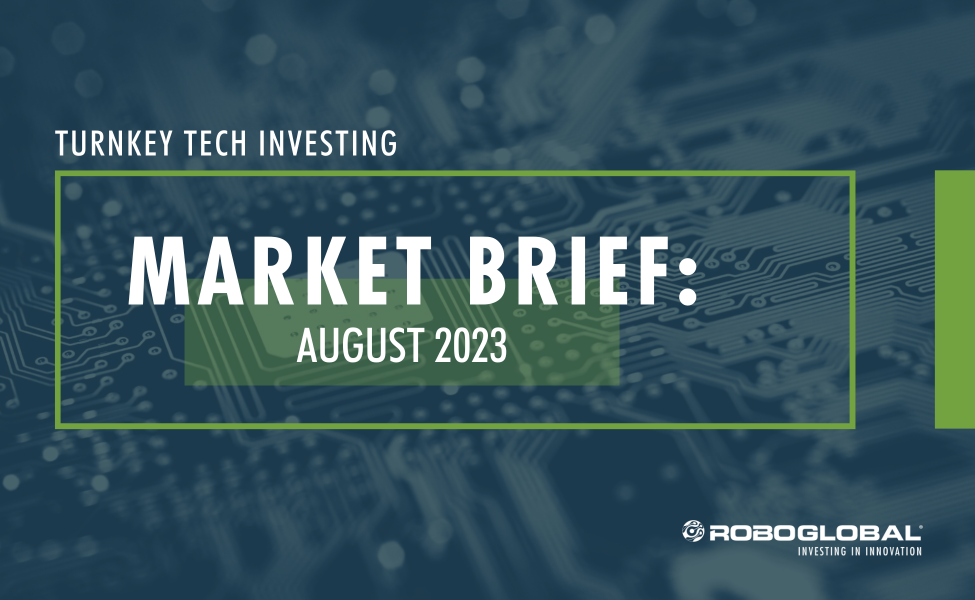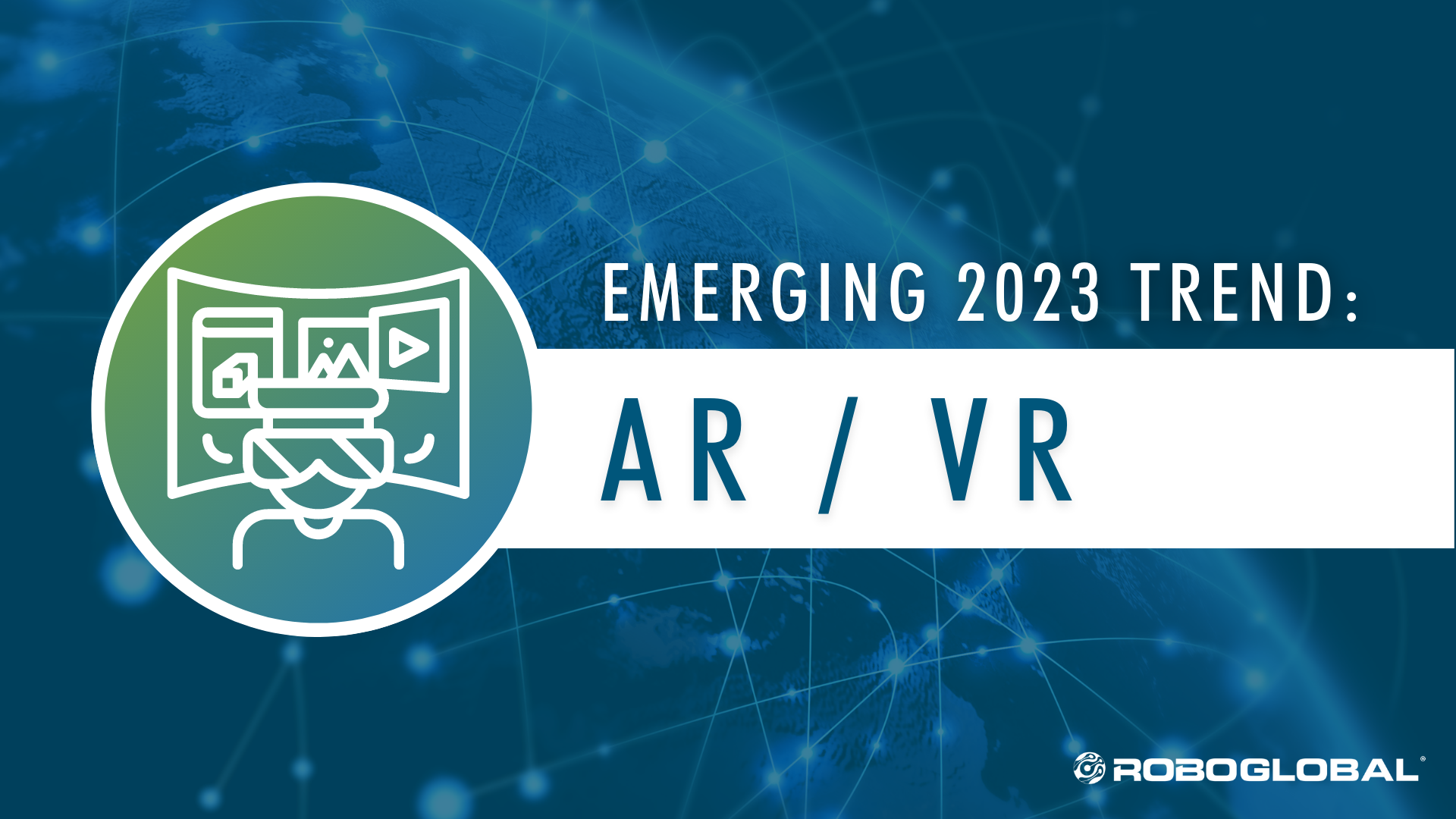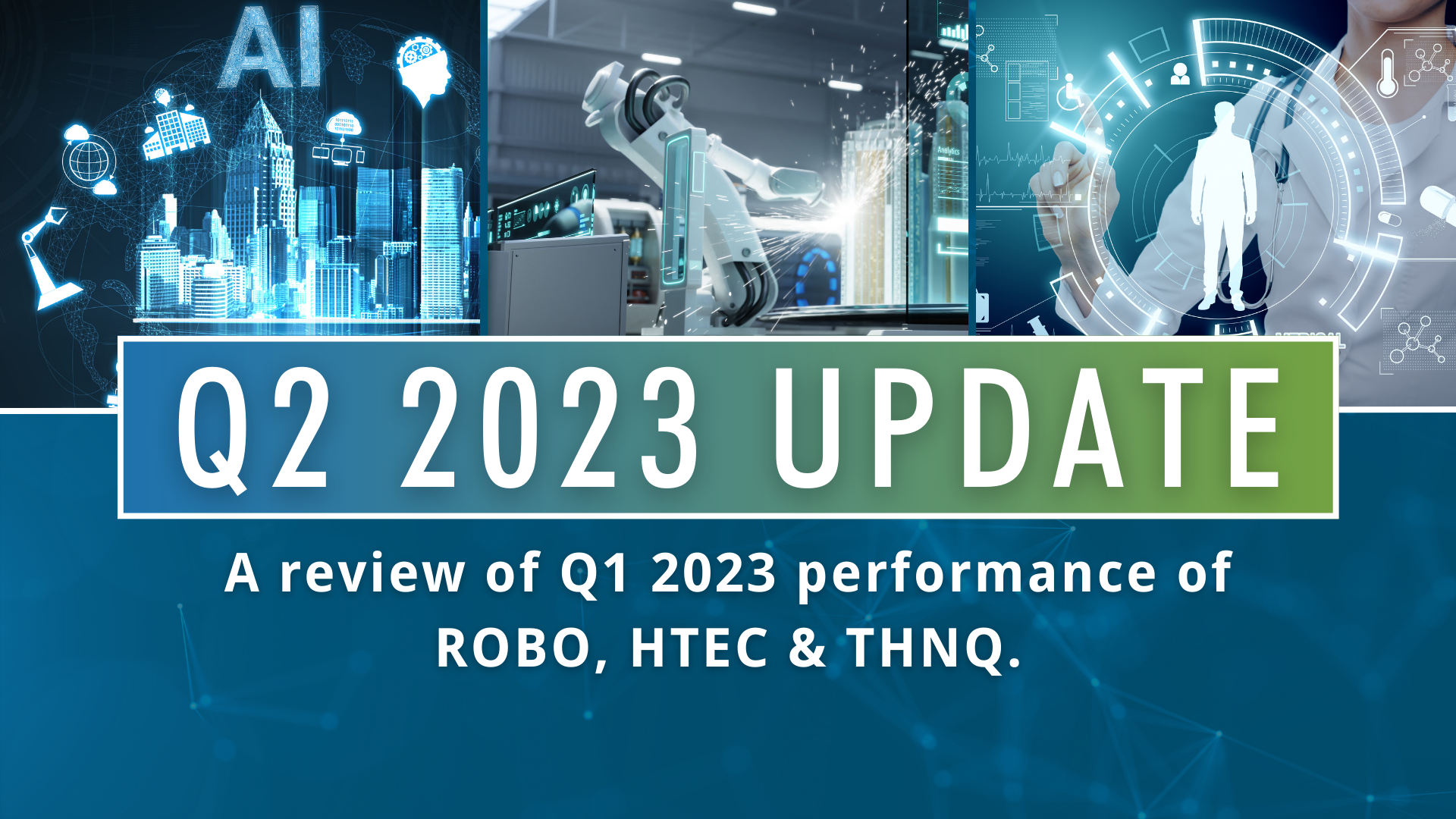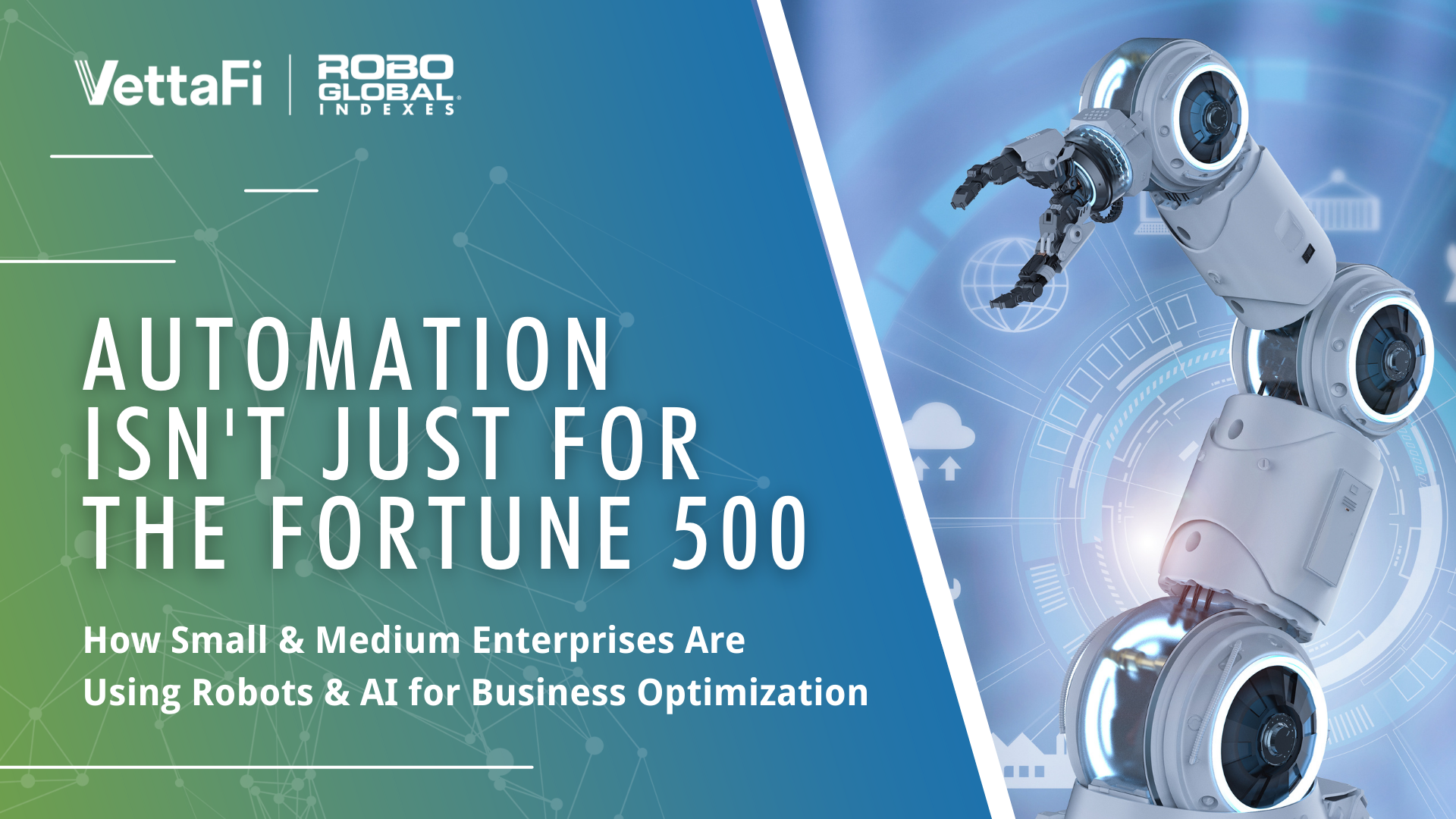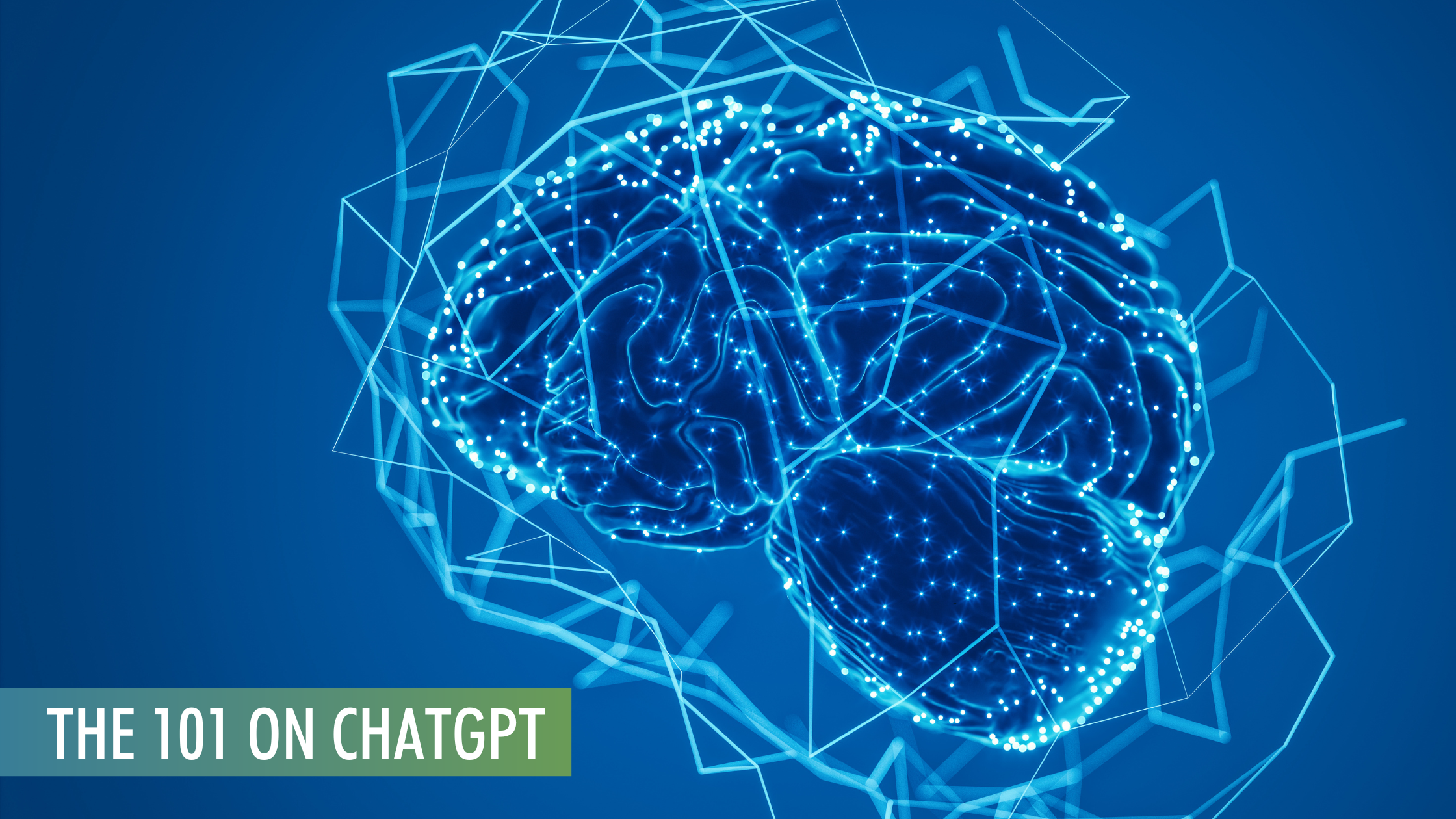Already the fastest tech launch in history, with one million users over five days following its launch in November 2022, ChatGPT has taken the world by storm. In less than three months, it's safe to say that it has started to fundamentally change the public perception of AI through a simple interface that allows a (human-written) text-based prompt to generate an AI-based response. Behind the scenes, there is a lot of work going on and a lot at stake. We had our esteemed board of strategic advisors, some of the top minds in AI and automation, give us the 101 on ChatGPT and what it could mean for our present and future.
One thing is certain: we are living through a pivotal inflection point for this impressive application of AI. In fact, as one AI expert from a leading U.S. research university noted, “ChatGPT's extraordinary contribution is putting the power of AI tools into the hands of the community. For the first time, there is an AI tool that is usable by all, independent of their training in AI. ChatGPT is democratizing the use of AI in language tasks.”
Let’s first pause to talk about what ChatGPT (and generative AI) is and then we can dive into what the experts think of this tremendous new technology—and how to invest in it.
TABLE OF CONTENTS
- What Is ChatGPT? (Hint: a form of generative AI)
- The history of OpenAI & ChatGPT
- Thoughts about ChatGPT from the experts
- Societal benefits & concerns about ChatGPT
- Why ChatGPT is here to stay
- How to invest in generative AI beyond OpenAI
What is ChatGPT?
As explained by ChatGPT itself:
Source: ChatGPT, OpenAI
In fact, ChatGPT can respond to requests in different tones and dialects ranging between anything from “Shakespearean” to “1920s New York Gangster”. Here it is answering what ChatGPT is in pirate-speak:
 ChatGPT is a web browser-based application of generative AI developed by the AI research lab OpenAI. According to their website, OpenAI’s “mission is to ensure that artificial general intelligence benefits all of humanity.” With that in mind, ChatGPT is currently a free service offered to the general public.
ChatGPT is a web browser-based application of generative AI developed by the AI research lab OpenAI. According to their website, OpenAI’s “mission is to ensure that artificial general intelligence benefits all of humanity.” With that in mind, ChatGPT is currently a free service offered to the general public.
GPT stands for Generative Pre-trained Transformers. There have been previous generations of GPT (the underlying technology of Chat GPT) which have improved with each iteration. GPT 3.5 is the first iteration available to the general public.
Generative AI uses deep learning to generate original content in the form of text, video, images, art, etc. in response to a typed (natural language) request.
The first version of Generative Pre-trained Transformers (GPT-1) was released in 2018, with OpenAI launching GPT-2 in 2019 with 1.5 billion parameters. Today’s GPT 3.5 has 175 billion parameters, making it far more accurate than previous versions. These parameters are like knobs or switches that control how well a computer can understand and work with human language, not necessarily the amount or type of data trained upon.
Generative AI apps like ChatGPT are made possible thanks to the digital scrubbing of information across the Internet. ChatGPT is specifically a text-to-text application that provides an original response to a written request. Each response is supposed to be a unique blend based on different bits and pieces found about the matter online. Of course, this is not always an effective way of gathering correct or non-biased information—the source is, after all, still the Internet.
History of OpenAI & ChatGPT
OpenAI was founded with $1 billion in commitments in 2015 from a forward-thinking tech collective that included Elon Musk (who resigned from the board in 2018), Sam Alton (the former president of Y-combinator, who became CEO of OpenAI in 2019), and others.
Fast-forward to 2023, and Microsoft is investing $10 billion for a 49% stake, a deal that allows Microsoft to continue as OpenAI’s exclusive AI cloud partner and with rights to OpenAI’s technologies, a suite of models that includes:
- text-generating AI ChatGPT,
- image-generating AI DALL-E 2 (a play on the words of both Salvador Dali and Pixar’s WALL-E), and
- Jukebox, a neural net for generating music.
Thoughts About ChatGPT From the AI Experts
According to our strategic advisory board of AI experts, there’s no doubt that this technology is here to stay. Quite confidently, an AI expert from one of the largest technology companies in the world commented, “ChatGPT is very real and very impressive. It's not a parlor trick. It is a very disruptive technology. It's not going to go away. We are going to have to learn to live with it and integrate it into society.”
Our board considers ChatGPT to be a powerful tool that also comes with limitations and concerns:
- ChatGPT is not a search engine.
- Data analyzed only goes through 2021.
- Responses are not fact-checked.
- Human biases may be picked up and reiterated by ChatGPT.
- There is potential for plagiarism.
But with such concerns also come increased societal access and benefits:
- Automation of simple procedural tasks (i.e., basic legal services)
- Content creation that is accessible to the broader public
- Powerful summarization tool
Another AI expert noted, "ChatGPT can help society by providing a tool for search and conceptualization. For example, a lawyer might use ChatGPT to find summaries of similar cases and evidence. More generally, ChatGPT can be used to support research in any field — law, government, medicine, etc. by synthesizing information from vast data sources. It is critical to remember that in order for this information to be useful, it also has to be fact-checked."
There is a long road ahead in terms of developing and fine-tuning products and services like ChatGPT, but the experts believe that it certainly represents a huge step forward in the world of AI.
Investing in Generative AI (Beyond OpenAI)
It’s important to note that OpenAI is not the only player in the game, with many private and public companies producing their own generative AI models, such as NVIDIA and Alphabet’s DeepMind group. We have identified many other AI-centric companies with high revenue and earnings potential from this transition. Furthermore—the current form and design are just the tip of the iceberg when it comes to the layers of foundational technologies required for the platform to function effectively. There is an entire ecosystem of existing technology (and companies) that stands to benefit from the swift adoption of ChatGPT and the like.
The ROBO Global Artificial Intelligence Index (ticker: THNQ) provides exposure to the generative AI ecosystem and many other high-growth industries. This portfolio includes both the world-class providers of AI technology and solutions as well as the companies harnessing and applying the power of AI.
Since both the passing of the U.S. CHIPS Act and the first publicly available generative AI (ChatGPT) became available in the second half of 2022, one might expect the market to have become too hot. In actuality, though, the THNQ index is still trading at 38% off its 2021 highs and at 5.18X forward EV/sales versus its historical 6.9X, down from over 10x EV/sales in 2021.
We believe the market has under-appreciated the multitude of factors that play into owning the AI ecosystem, which also benefits from Intelligent Electric Vehicles, next-gen wearables (including mixed reality headsets), advances in healthcare diagnostics, and direct-to-consumer and B2B AI companies gaining steam. If you’re an investor who is ready to tap into the growth of the generative AI to come, you may want to consider a diversified approach to tracking the universe with the THNQ index.

